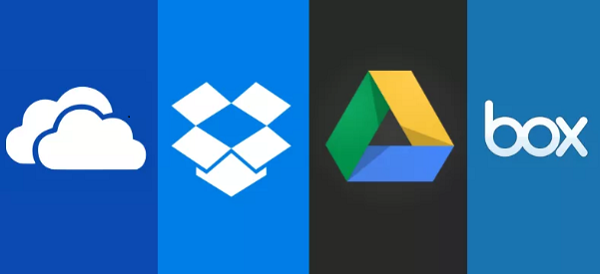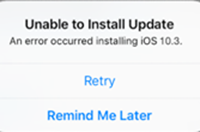Android Data Recovery
From 2016 to 2021, the total volume of data stored in the cloud is predicted to rise from 800 to 2300 exabytes. For reference, 1 exabyte is equivalent to 1,000,000 terabytes. More and more individual users, businesses, academic institutions, and governments are moving their operations to the cloud. Cloud technology is convenient, easy-to-use, and provides a huge amount of flexibility. However, cloud computing is not without its flaws, particularly when it comes to security. For this reason, many organizations choose to store their most sensitive data on hard drives. This article will dive into the difference between cloud vs. physical storage to see what is the best option for you.
Cloud Storage
Cloud storage first truly emerged with Dropbox back in 2007. Within a few years, many individuals started using their service as a more convenient way to store and access their files from nearly any internet-connected device. Nowadays, cloud storage is big business. Major players like Google Drive, Microsoft OneNote, Apple iCloud, Amazon Web Services, and many others now rival Dropbox.
Each of these providers has its own unique features, but they all center on the same concept of storing data online and making it easily accessible. This accessibility, however, does come with a security risk. Hackers routinely target both major and minor cloud platforms to gain access to extremely valuable data in their systems. Moreover, large companies reserve the right to view your data and sometimes use it for their own purposes, like personalized advertisements, etc.
Finally, cloud servers still exist in the real world. We tend to think of the internet as a place separated from physical reality. However, all your files are stored typically in large data centers. These places are just as susceptible to problems such as natural disasters, employee tampering, server crashes, and other potential issues, so keep this in mind when selecting your platform.
Bottom Line: Cloud storage is a convenient option that allows you to access your files from anywhere. However, you do need to take security precautions to prevent hackers and other threats from creating problems.
Physical Storage
It might seem strange, given the recent explosive growth of cloud computing, that physical storage options still even have a future. The simple fact is that not everybody wants to move to the cloud. With physical storage, like hard drives and USB sticks, you know exactly where your data is at all times. Moreover, since the vast majority of cyber threats occur over the internet, you can be assured that your data is safe as long as it isn't plugged into an internet-connected device.
Physical storage devices do have drawbacks, however. To begin with, you can only have access to data when you have the device. If it gets lost, stolen, or simply forgotten at home, you are out of luck. In addition, physical storage devices are only as secure as the people they are entrusted to. If somebody with malicious intent is to gain possession of the devices, there's nothing you can do to stop this person from hijacking the files. Also, sometimes people make innocent mistakes and accidentally delete key files. When this occurs, it sometimes may be impossible to get your data back.
Bottom Line: Physical storage devices provide you with an added layer of security, but it means less convenience. But unless the device has been misplaced, you always know where your data is. Ultimately, it's a good option for confidential files such as medical records, tax documents, and other data you want to keep out of the wrong hands.
Physical Storage Vs. Cloud Storage: Which is Better?
At the end of the day, both cloud and physical storage options have their pros and cons. With cloud storage, you get a huge amount of convenience and flexibility while trading off insecurity. On the other hand, physical devices tend to be more secure, but they extremely limit accessibility to data. Regardless of which option you choose, you need to secure your files. With NordLocker's file encryption service, you secure your files with the latest technology making your files virtually invincible. It’s also easy to use. After you install it, you can click and encrypt your files in no time at all.
Best of all, it's compatible with both cloud computing and physical options. For cloud computing purposes, you simply encrypt the file and upload it to your platform of choice. With physical devices, you likewise encrypt and copy to your portable hard drive or other tools. Ultimately, NordLocker gives you the tools you need to make the most out of both cloud and physical storage options with the highest level of security and convenience for all your data needs.






















